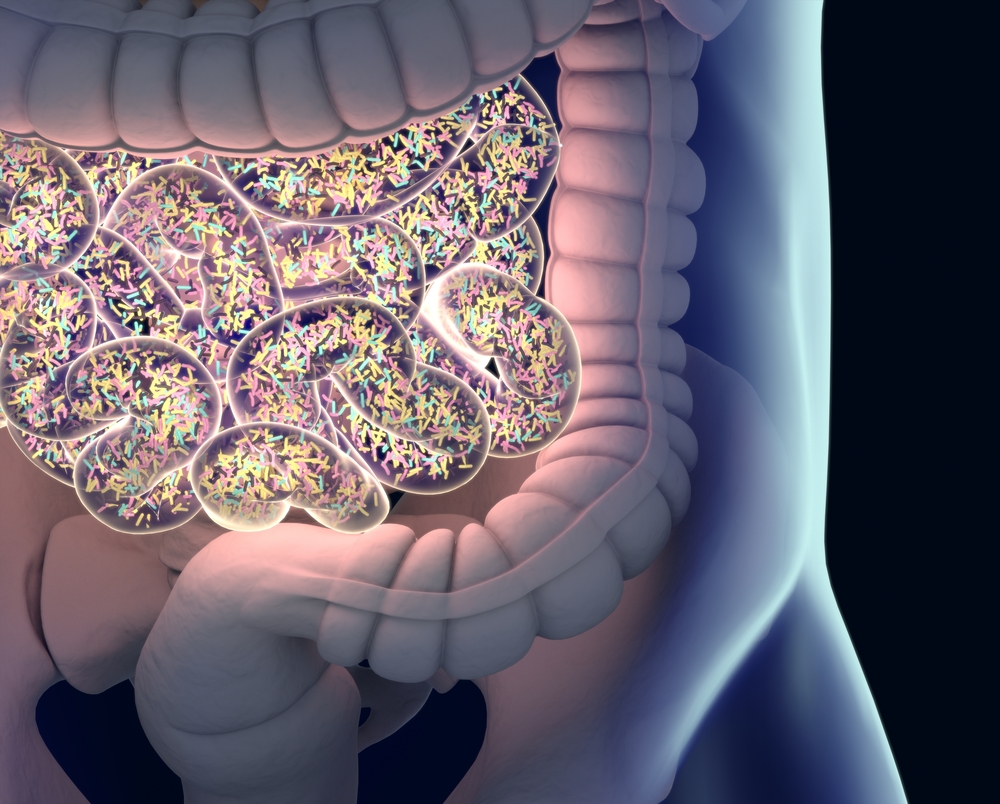Gut Bacteria Protects Against Alpha-Synuclein Buildup in Nerve Cells in Worm Model, Study Shows

A common gut bacteria called Bacilus subtilis (B. subtilis), which aids in digestion, shows the potential to counteract the misfolded alpha-synuclein protein central to Parkinson’s disease, according to a new study.
B. subtilis, a so-called “good” bacteria, slowed the buildup of this protein in the nerve cells of worms engineered to produce human alpha-synuclein, and was found to clear some of its harmful clumps.
The study, “Probiotic Bacilus subtilis Protects against α-Synuclein Aggregation in C. elegans,”was published in Cell Reports.
In order to function correctly in the body, proteins are folded into specific shapes, like making biological origami cranes. In Parkinson’s, the alpha-synuclein in nerve cells misfolds and then clumps together into structures that are toxic to these neurons.
Several recent studies have drawn links between what happens in the gut and in the brain. That led researchers at the University of Edinburgh and the University of Dundee, both in the U.K., to ask whether changes in the gut could affect alpha-synuclein aggregation, or buildup.
As a proof-of-principle — a study designed to evaluate whether further research should take place — the team fed various over-the-counter probiotics, or so-called “healthy bacteria,” to a roundworm model of synucleinopathy. Synucleinopathy are neurodegenerative diseases such as Parkinson’s that are characterized by the abnormal buildup of alpha-synuclein protein in nerve cells.
The goal was to see which, if any, of the pribiotics could alter the formation of these toxic alpha-synuclein clumps in the roundworm model, known as C. elegans.
Worms raised on a specific strain of B. subtilis, called PXN21, showed a near-total absence of these clumps, compared with worms on other diets. B. subtilis also managed to clear away clumps that had already formed in older worms, which were later switched to the B. subtilis diet. The probiotic’s protective effects lasted over the worms’ lifespan and improved locomotion defects associated with the toxic clumps.
Importantly, the observed anti-aggregation effect was found to be a general property of the B. subtilis species, and not only of the particular strain used.
B. subtilis’s capacity to protect against alpha-synuclein aggregation later in adulthood was partly mediated by the action of the DAF-16 gene, the worm equivalent of the human FOXO1 gene, and also by the bacteria’s capacity to produce a biofilm matrix — a three-dimensional bacterial community embedded in a self-produced matrix.
However, this mechanism was not the same one responsible for the strong protection observed in early adults. The team found that protection was partially mediated by the action of an active and stable bacterial metabolite.
Importantly, in both early and older adults, B. subtilis changed how the worms processed fats called sphingolipids. More specifically, B. subtilis produced chemicals that changed how certain enzymes — ceramide synthase, acid sphingomyelinase and serine palmitoyltransferase — processed sphingolipids.
Previous studies have suggested that sphingolipid metabolism modifies alpha-synuclein pathology, or disease manifestation, in Parkinson’s.
While encouraging, these findings are quite early and must be corroborated in other settings. Mice, a model organism much more closely related to humans than worms, will be a logical next step. If all goes well and a probiotic-based Parkinson’s therapy makes it to clinical trials, these could be fast-tracked, as probiotic B. subtilis is already commercially available.
“The results from this study are exciting as they show a link between bacteria in the gut and the protein at the heart of Parkinson’s, alpha-synuclein,” Beckie Port, research manager at Parkinson’s UK, one of the study’s funders, said in a press release.
“Studies that identify bacteria that are beneficial in Parkinson’s have the potential to not only improve symptoms but could even protect people from developing the condition in the first place,” Port said.






